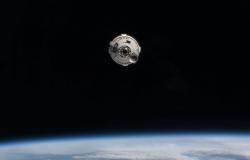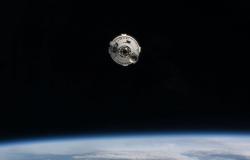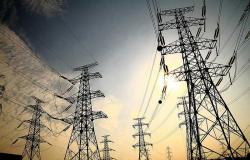Miami, June 26 (EFE).- The return to Earth of the first manned mission of the Boeing company’s Starliner ship still lacks a date after several delays due to helium leaks, which increases speculation about other options for the return of the two NASA astronauts.
The specialized media speak of a “stranded”, “trapped” mission, of the possibility of a change of mission to a rescue one, and of the idea that a SpaceX Dragon capsule is the alternative to return the two astronauts, which would be embarrassing for Boeing.
Starliner left Florida on June 5 for the International Space Station (ISS) for a week-long stay, returning on June 14, but technical problems keep its return in suspense.
Astronauts Barry ‘Butch’ Wilmore and Sunita ‘Suni’ Williams thus complete twenty days in the space laboratory this Wednesday, where according to NASA they can remain for several weeks and take advantage of the time for the federal agency’s investigations.
However, the silence in recent days from NASA on the matter and the lack of a date, even a tentative one, for the return of Starliner has triggered all kinds of hypotheses.
Boeing, which has also maintained a certain silence in recent days about Starliner, is also in the eye of the storm due to a cascade of technical problems in its commercial aircraft that have caused serious damage to its reputation.
Additionally, in recent days federal prosecutors have recommended that the Department of Justice take action against the company for failing to comply with an agreement reached in 2021 to compensate the families of the victims of two plane crashes in 2018 and 2019, which caused the deaths of 346. passengers.
In response to a question from EFE about the possible return dates of the Starliner spacecraft, a NASA spokesperson was asked about a communication from last Friday that the federal agency posted on social media.
In that statement, however, he maintained the date of today, June 26, for the return, with no other options, despite the fact that specialized media reported another delay.
“NASA and Boeing leaders are preparing for the June 26 return to Earth of the Crew Flight Test mission with NASA astronauts Butch Wilmore and Suni Williams from the International Space Station,” Friday’s statement said.
He adds: “This adjustment eliminates conflicts from a series of spacewalks while allowing mission teams time to review propulsion system data and evaluate any additional testing opportunities.”
On the other hand, he points out that “mission administrators are evaluating future return opportunities after the two spacewalks planned by the station on June 24 (which was suspended this Monday due to technical problems) and July 2.”
Boeing’s mission problems are not new. The launch from Florida had been postponed almost a year from its initial date and in the days before takeoff a helium leak was found.
The ship, however, took flight from a platform at the Cape Canaveral Space Force Station on June 5 and the next day it was already embedded in the Harmony module of the ISS, but with new helium leaks.
The first manned mission of the Starliner (which in May 2022 successfully completed an uncrewed trip to the ISS) should have taken off in July 2023, but a month before the managers announced the indefinite postponement of takeoff in order to solve the ship’s parachute.
The mission was originally planned for 2017, but has since suffered a series of delays that have cost the US space agency some $4.2 billion.
With the mission, Boeing hopes to obtain the necessary certifications to operate as a second provider of cargo and crew transportation to the ISS, as SpaceX already does after million-dollar contracts that both private firms have signed with NASA.
Now, the delay in the mission’s return is going through NASA’s process for certification toward the end of this year. If obtained, Boeing plans to make its first operational trip to the ISS in February 2025.
Meanwhile, Elon Musk’s SpaceX has made 13 manned space trips in its Dragon capsule since May 2020, including four for commercial clients, and twelve of which have been to the ISS. In all of them it has transported 50 people, including astronauts, cosmonauts and private citizens. EFE
ims/pss
(photo)






